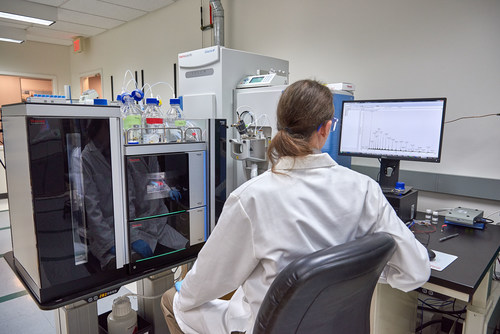
Thermo Fisher Scientific and the University of California, Davis (UC Davis) West Coast Metabolomics Center, have launched a research collaboration designed to support the rapid scale-up of large cohort studies and clinical research in metabolomics by sharing innovations, best practices, and standard operating procedures.
Thermo Fisher and UC Davis have established The Center of Excellence in Clinical Metabolomics. Based at UC Davis’ Clinical Campus in Sacramento, the Center is intended to enable targeted and untargeted metabolic profiling for large-scale population-based cohorts across translational research and precision medicine.
The Center also said it plans to showcase how clinical metabolomics can be used in a fast, cost-effective and routine way for both cross-sectional and longitudinal population cohort research.
“Together, we will utilize new technologies ranging from sample preparation, automation in sample tracking, fast data acquisition, and cloud-based data processing,” the clinical metabolomics Center states on its website.
The Center will develop standardized processes for the research community, including end-to-end metabolic profiling workflows; optimized liquid chromatography-mass spectrometry (LC-MS) methods, protocols for analytical controls to monitor instrument performance; and training courses for metabolomics staff, scientists and core lab managers, Thermo Fisher and UC Davis said.
“The work we’ll do here serves science by refining basic, but critical scientific techniques for metabolomics so they can quickly become clinically relevant,” Mark Stevenson, executive vice president and chief operating officer of Thermo Fisher, said in a statement.
The Center aims to generate high-quality data using the Thermo Scientific Vanquish Duo UHPLC system in conjunction with the company’s latest generation of mass spectrometers based on its Orbitrap technology for increased throughput. [UHPLC is Ultra-High-Performance Liquid Chromatography]. The instrument combination is intended to support the development of streamlined workflows for large-scale studies and translational research, Thermo Fisher said.
UC Davis is already home to the UC Davis West Coast Metabolomics Center, which has emerged as an international leader in metabolomics research, service and education since it launched in 2004. That Center aims to advance the state-of-the art in mass spectrometry-based metabolomics research—specifically in computational metabolomics—by combining four metabolomic research laboratories with a large service core, training courses, seminars and workshops.
The West Coast metabolomics center provides opportunities for research collaborations, but also makes general fee-based services available to biomedical, preclinical and clinical researchers, including industry investigators.
“We aim to provide advance training courses for early career community members as well as independent investigators and scientists, and this will be supported by state-of-the-art technology from Thermo Fisher,” added Oliver Fiehn, PhD, director of the West Coast Metabolomics Center and a professor at the UC Davis Genome Center.
Fiehn has served since 2012 as director of the NIH West Coast Metabolomics Center, supervising 35 staff operating 16 mass spectrometers and coordinating activities with three UC Davis satellite labs, including efforts for combined interpretation of genomics and metabolomics data.













